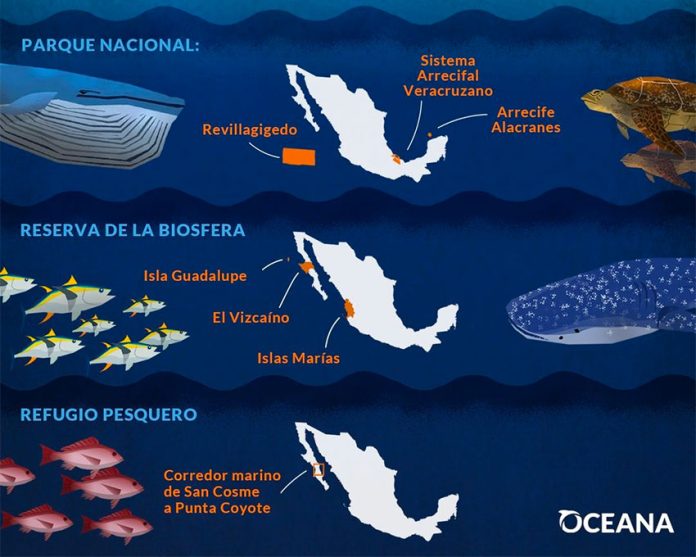Illegal fishing in seven protected areas is putting endangered species at risk, a United States NGO has revealed.
A study by Oceana shows that at least 236 Mexican vessels have encroached into protected marine areas and fishing refuge zones since 2012, imperiling species of tortoise, shark, fish and other sea life, and that 10% of all vessels registered since that year could have engaged in violations.
Banning commercial fishing in certain areas allows species to reproduce and develop, before migrating to areas where fishing is allowed.
The report reveals that the worst affected area is Scorpion Reef off Yucatán, where 106 vessels were recorded in a place where no type of fishing is allowed. The reef is the largest coral structure in the southern Gulf of Mexico, home to four endangered species of turtle, 136 species of fish and 24 species of shark.
Sixty vessels were detected in the Veracruz Reef System National Park, and 47 in the Mary Islands Biosphere Reserve, off Nayarit.
Baja California Sur has seen illegal fishing at Punta Coyo, Guadalupe Island, in the El Vizcaíno Biosphere Reserve, at the Revillagigedo National Parks and and in deep Pacific waters.
Oceana used a platform called Global Fishing Watch (GFW) to conduct its research; it’s a free mapping platform it developed with Google which shows the activities of more than 70,000 fishing vessels around the world.
The irector of Oceana, Renata Terrazas, urged authorities to use the GFW tool. “We invite Conapesca [the National Commission of Aquaculture and Fisheries] to use this tool that facilitates the work of all the authorities involved in the surveillance of our seas,” she said.
Mariana Aziz, campaign director at Oceana, said transparency was key to protecting endangered species. “Knowing what is happening at sea is fundamental to protect its biodiversity. One of the main threats is illegal fishing. To combat it we need to make fishing activity more transparent, and put that information to the institutions that should be doing patrol operations, like the National Commission of Protected Natural Areas,” she said.
Mexico News Daily
